Teen Life: Recovery Journey Resources
July 2024
Stories of Struggle, Triumph and Resilience
 Recovery is possible!! In sharing stories of life struggles and the successes, you may be helping another move forward on the journey! Share your story. The Partnership to End Addiction offers stories of those with lived experience as they share how their lives and those of their family members have been impacted by substance use and addiction.
Recovery is possible!! In sharing stories of life struggles and the successes, you may be helping another move forward on the journey! Share your story. The Partnership to End Addiction offers stories of those with lived experience as they share how their lives and those of their family members have been impacted by substance use and addiction.
June 2024
Are You Ready for a Job Interview?
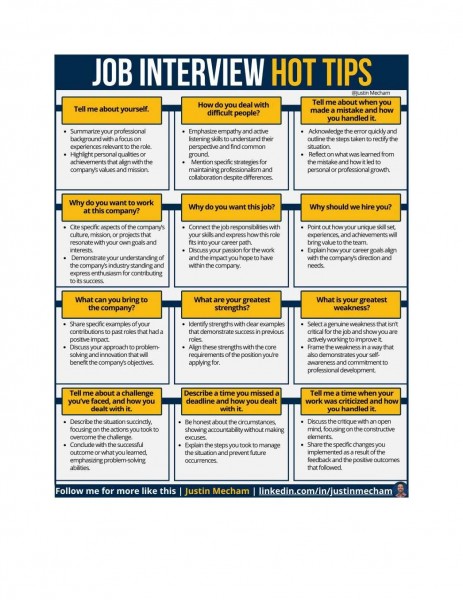
As we enter summer and school is out, many teens and young adults are seeking employment for summer or for long term. Being prepared for an interview in important. Attached is a great guide for how to learn more about the process of a successful interview. Take a look and think about how you will address the employment opportunity.
May 2024
For Kids and Families from the Sesame Street Friends
 If the past few years have been a challenging for you and your young ones, you are very likely to be managing some mental health issues for both your little ones and maybe, for yourself. With changes in lifestyles, pandemic restrictions and schools going virtual, caregivers are struggling to move forward. Sesame Street’s Elmo is not the only friend wanting to help. All the Sesame furry fuzzy friends are ready to help you talk to your kids about their feelings, help them label them, and find ways to manage them. Noticing children’s real emotional distress can be a big issue and somewhat overwhelming for caregivers. We may be concerned about saying or doing the wrong thing. To consider how to best care for little ones, one good resource is Elmo and friends. Take time to read and try the list of six mental health activities that may help.
If the past few years have been a challenging for you and your young ones, you are very likely to be managing some mental health issues for both your little ones and maybe, for yourself. With changes in lifestyles, pandemic restrictions and schools going virtual, caregivers are struggling to move forward. Sesame Street’s Elmo is not the only friend wanting to help. All the Sesame furry fuzzy friends are ready to help you talk to your kids about their feelings, help them label them, and find ways to manage them. Noticing children’s real emotional distress can be a big issue and somewhat overwhelming for caregivers. We may be concerned about saying or doing the wrong thing. To consider how to best care for little ones, one good resource is Elmo and friends. Take time to read and try the list of six mental health activities that may help.
Check out: 6 Engaging Mental Health Activities for Kids and Families from Sesame Street - Sesame Workshop
May 2024
Mental Health Month: Time to Talk
 In-person talks promote healthy mental development. This Mental Health Awareness Month, talk to your children and teens about mental health. Need help getting started?
In-person talks promote healthy mental development. This Mental Health Awareness Month, talk to your children and teens about mental health. Need help getting started?
Check out the resource at: samhsa.gov/mental-health/how-to-talk/parents-and-caregivers #MHAM2024 #MentalHealthMatters
March 2024
Foster Care “Aging Out” Statistics:
 As depressing as that sounds, that is the reality for 23,000 kids age out of the foster care system every year. It’s called “aging out.” This means the government no longer has jurisdiction over a child. Once foster children reach a certain age, they no longer qualify for government benefits. The loss of benefits is not the only issue that makes this the jump into an extremely difficult adulthood. Children, often placed in the foster care system due to neglect or abandonment, age out because they were never adopted. At 18, too often they’re not ready. Youth who age out of foster care belong to one of most vulnerable and at-risk groups in America. With out a strong plan in place the following may occur:
As depressing as that sounds, that is the reality for 23,000 kids age out of the foster care system every year. It’s called “aging out.” This means the government no longer has jurisdiction over a child. Once foster children reach a certain age, they no longer qualify for government benefits. The loss of benefits is not the only issue that makes this the jump into an extremely difficult adulthood. Children, often placed in the foster care system due to neglect or abandonment, age out because they were never adopted. At 18, too often they’re not ready. Youth who age out of foster care belong to one of most vulnerable and at-risk groups in America. With out a strong plan in place the following may occur:
- 1-in-4 won’t graduate from high school or be able to pass their GED;
- 20% will become instantly homeless;
- 60% will be convicted of a crime;
- 50% of foster children have no income within their first four years of aging out;
- Those who do have an average annual income of $7,500;
- Between 3% and 10.8% of foster care alumni have a bachelor’s degree.
Learn more about resources to help this time to be safer and more supportive.
Check out: Resources at: Aging Out of Foster Care: Financial Help & Transition Programs (incharge.org)
February 2024
New Talk
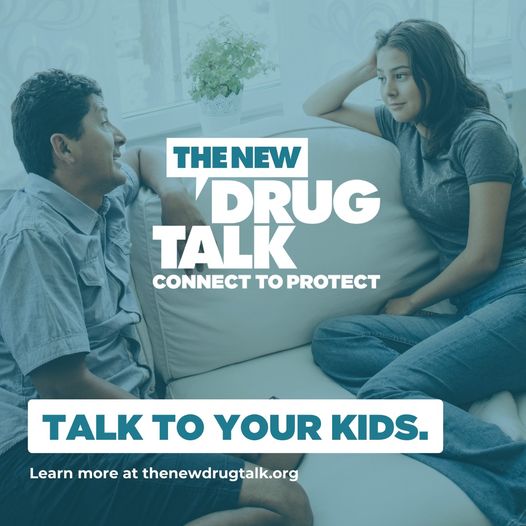
January 2024
National Drug and Alcohol Facts Week®
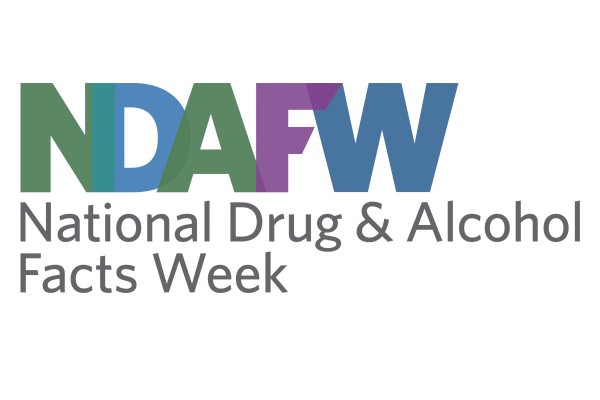 Participate in National Drug and Alcohol Facts Week® (NDAFW) and help share facts about drugs, alcohol, and addiction in your community. NDAFW is an annual health observance that inspires dialogue about the science of drug use and addiction among youth. NDAFW provides an opportunity to bring together scientists, students, educators, healthcare providers, and community partners to help advance the science and address youth drug and alcohol use in communities and nationwide. Sign up for NDAFW email updates below, and find lots of great resources for planning and promoting your very own NDAFW event. Mark your calendar for National Drug and Alcohol Facts Week, March 18–24, 2024
Participate in National Drug and Alcohol Facts Week® (NDAFW) and help share facts about drugs, alcohol, and addiction in your community. NDAFW is an annual health observance that inspires dialogue about the science of drug use and addiction among youth. NDAFW provides an opportunity to bring together scientists, students, educators, healthcare providers, and community partners to help advance the science and address youth drug and alcohol use in communities and nationwide. Sign up for NDAFW email updates below, and find lots of great resources for planning and promoting your very own NDAFW event. Mark your calendar for National Drug and Alcohol Facts Week, March 18–24, 2024
Learn more: National Drug and Alcohol Facts Week® (NDAFW) | National Institute on Drug Abuse (NIDA) (nih.gov)
December 2023
The holiday season is here!
 The weather might be a little more frightful, but the holidays can be a delightful time to #Take20withKids. Whether you’re traveling far and wide or enjoying a cozy winter break at home, there are plenty of opportunities to have conversations around healthy decision-making and empower your kids to say “YES” to a healthy lifestyle and “NO” to underage drinking. To wrap up the 20th anniversary of Ask, Listen, Learn’s underage drinking prevention program, check out the 20 ways to spark some holiday magic (and conversations) with your kids.
The weather might be a little more frightful, but the holidays can be a delightful time to #Take20withKids. Whether you’re traveling far and wide or enjoying a cozy winter break at home, there are plenty of opportunities to have conversations around healthy decision-making and empower your kids to say “YES” to a healthy lifestyle and “NO” to underage drinking. To wrap up the 20th anniversary of Ask, Listen, Learn’s underage drinking prevention program, check out the 20 ways to spark some holiday magic (and conversations) with your kids.
Visit: #Take20withKids for Holiday Magic – Ask, Listen, Learn (asklistenlearn.org)
October 2023
Talk. Talk. Talk.
 The anxious feeling of sending a grown child off to college for the first time has happened. It can be described as a strange mixture of pride, relief and severe anxiety. However, now is the time to check in with them and see how they are managing this big step. What do parents need to know? Research has shown that having parents who communicate clear expectations against using alcohol during high school is associated with a lower chance of drinking excessively during college. To learn more about how to address college drinking, check out the materials on the Partnership to End Addiction website.
The anxious feeling of sending a grown child off to college for the first time has happened. It can be described as a strange mixture of pride, relief and severe anxiety. However, now is the time to check in with them and see how they are managing this big step. What do parents need to know? Research has shown that having parents who communicate clear expectations against using alcohol during high school is associated with a lower chance of drinking excessively during college. To learn more about how to address college drinking, check out the materials on the Partnership to End Addiction website.
What Parents Need to Know About College Binge Drinking - Partnership to End Addiction (drugfree.org)
September 2023
988 Suicide and Crisis Lifeline Addition
 The U.S. Department of Health and Human Services (HHS) today announced the 988 Suicide & Crisis Lifeline’s addition of nationwide American Sign Language (ASL) services for people who are Deaf and Hard of Hearing, as part of ongoing efforts to expand accessibility to behavioral health care for underserved communities. Since the July 2022 launch, the 988 Lifeline has received more than 5.5 million calls, texts, and chats. The 988 Lifeline is a network of more than 200 state and local call centers supported by HHS through the Substance Abuse and Mental Health Services Administration (SAMHSA) for anyone looking for help with suicide, mental health, and substance use-related crises.
The U.S. Department of Health and Human Services (HHS) today announced the 988 Suicide & Crisis Lifeline’s addition of nationwide American Sign Language (ASL) services for people who are Deaf and Hard of Hearing, as part of ongoing efforts to expand accessibility to behavioral health care for underserved communities. Since the July 2022 launch, the 988 Lifeline has received more than 5.5 million calls, texts, and chats. The 988 Lifeline is a network of more than 200 state and local call centers supported by HHS through the Substance Abuse and Mental Health Services Administration (SAMHSA) for anyone looking for help with suicide, mental health, and substance use-related crises.
August 2023
Schools Back: Build Success
 The CDC’s "What Works In Schools" program helps promote adolescent health and wellbeing. It’s time to head #BackToSchool! Schools can provide a safe and supportive environment that helps students feel connected and is critical to helping them thrive mentally, physically, and academically.
The CDC’s "What Works In Schools" program helps promote adolescent health and wellbeing. It’s time to head #BackToSchool! Schools can provide a safe and supportive environment that helps students feel connected and is critical to helping them thrive mentally, physically, and academically.
Learn more about what works: https://bit.ly/46zA58U
August 2023
Moving Forward
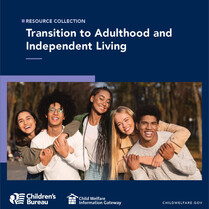 If you are a young adult who is transitioning for the foster care system, check out this great resource. Child Welfare Information Gateway has launched a full update on a resource collection to help caseworkers support youth transitioning to adulthood. For the first time, this collection features resources for young adults. This means you. Developed in partnership with lived experience experts, the Resources for Youth Transitioning to Adulthood, a comprehensive starting point for finding resources on education, employment, finances, housing, life skills, and more.
If you are a young adult who is transitioning for the foster care system, check out this great resource. Child Welfare Information Gateway has launched a full update on a resource collection to help caseworkers support youth transitioning to adulthood. For the first time, this collection features resources for young adults. This means you. Developed in partnership with lived experience experts, the Resources for Youth Transitioning to Adulthood, a comprehensive starting point for finding resources on education, employment, finances, housing, life skills, and more.
Go to: Announcing New Resources for Youth in Foster Care Transitioning to Adulthood (govdelivery.com)
April 2023
Take the Test
 Mental health conditions, such as depression or anxiety, are real, common and treatable. And recovery is possible. Online screening is one of the quickest and easiest ways to determine whether you are experiencing symptoms of a mental health condition. After your mental health test, you will see information, resources, and tools to help you understand and improve your mental health.
Mental health conditions, such as depression or anxiety, are real, common and treatable. And recovery is possible. Online screening is one of the quickest and easiest ways to determine whether you are experiencing symptoms of a mental health condition. After your mental health test, you will see information, resources, and tools to help you understand and improve your mental health.
Mental Health America Inc. states: “Please note: Online screening tools are meant to be a quick snapshot of your mental health. If your results indicate you may be experiencing symptoms of a mental illness, consider sharing with a mental health provider (such as a doctor or a therapist) who can give you a full assessment and talk to you about options for how to feel better.”
April 2023
Check this out!!
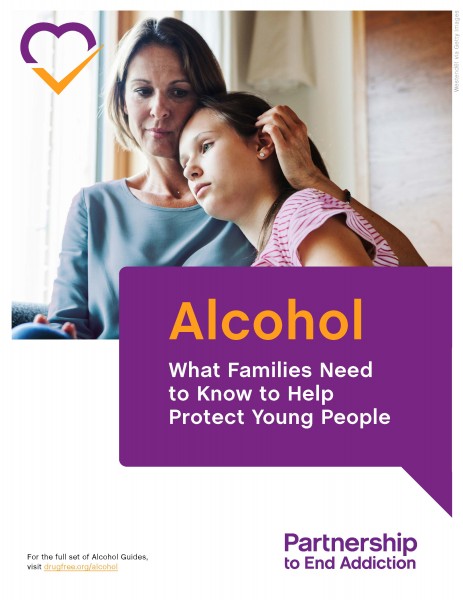 The Partnership to End Addiction offers this publication for both youth and families to learn and address prevention issues to teen substance use. Check it out.
The Partnership to End Addiction offers this publication for both youth and families to learn and address prevention issues to teen substance use. Check it out.
January 2023
Talk Time
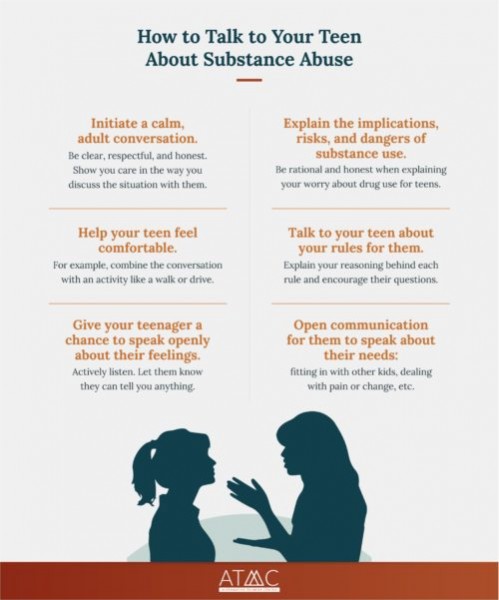 As you start your new year, take a minute to spend time with your busy teen and share a conservation about substance use. It is easy to get distracted and not take the time that is so vital to a healthy family and community. Talking with your teen has been shown to be the most effective influence in your teens decisions. So TALK, TALK & LISTEN!
As you start your new year, take a minute to spend time with your busy teen and share a conservation about substance use. It is easy to get distracted and not take the time that is so vital to a healthy family and community. Talking with your teen has been shown to be the most effective influence in your teens decisions. So TALK, TALK & LISTEN!
November 2022
Alateen Helps
 From Alateen – Hope for Children of Alcoholics: “If no one knows us as we really are, we run the risk of becoming victims of our own self-hatred. If we can be loved by somebody who sees us as we are, we can then begin to accept ourselves. Others rarely think we’re as bad as we do.”
From Alateen – Hope for Children of Alcoholics: “If no one knows us as we really are, we run the risk of becoming victims of our own self-hatred. If we can be loved by somebody who sees us as we are, we can then begin to accept ourselves. Others rarely think we’re as bad as we do.”
September 2022
Partnership to End Addiction
 The end of substance use treatment is just the beginning of the road to recovery. Many parents expect their child to be “fixed” following treatment, but substance use disorder can be a lifelong, relapsing disease that requires ongoing management. The initial completion of treatment is just the beginning of of the longer recovery journey. To help your child manage their recovery over time visit: https://drugfree.org/article/after-drug-treatment.
The end of substance use treatment is just the beginning of the road to recovery. Many parents expect their child to be “fixed” following treatment, but substance use disorder can be a lifelong, relapsing disease that requires ongoing management. The initial completion of treatment is just the beginning of of the longer recovery journey. To help your child manage their recovery over time visit: https://drugfree.org/article/after-drug-treatment.
July 2022
Learn More About Resources for Wellness
 If you are a parent or friend concerned about a child’s substance use, take a look at the information on the website Partnership to End Addiction, (formerly Partnership for Drug-Free Kids). It is a nonprofit organization of researchers, advocates, clinicians, communicators that support families struggling with substance use with information, support and guidance to get the help their loved one needs and deserves.
If you are a parent or friend concerned about a child’s substance use, take a look at the information on the website Partnership to End Addiction, (formerly Partnership for Drug-Free Kids). It is a nonprofit organization of researchers, advocates, clinicians, communicators that support families struggling with substance use with information, support and guidance to get the help their loved one needs and deserves.
Partnership to End Addiction | Where Families Find Answers - Partnership to End Addiction
July 2022
Know Your Resource in a Crisis
 Remember the 988-dialing code. On July 16, 2022, the U.S. will transition to using the 988-dialing code. It is a once-in-a-lifetime opportunity to strengthen and expand the existing Lifeline. The 988-dialing code is a first step toward transforming crisis care in our country. It ensures no matter where you live, you can reach a trained crisis counselor who can help.
Remember the 988-dialing code. On July 16, 2022, the U.S. will transition to using the 988-dialing code. It is a once-in-a-lifetime opportunity to strengthen and expand the existing Lifeline. The 988-dialing code is a first step toward transforming crisis care in our country. It ensures no matter where you live, you can reach a trained crisis counselor who can help.
To learn more visit: 988 Partner Toolkit | SAMHSA.
May 2022
Self Care is Important
 The CDC reminds us that after a disaster such as the recent school tragedies, you may experience anxiety, fear, sadness, sleep disruption, distressing dreams, irritability, difficulty concentrating, and anger outbursts. Learn the signs of mental stress to help cope. With the recent school losses in the news, check in with your caregivers and share your feelings.
The CDC reminds us that after a disaster such as the recent school tragedies, you may experience anxiety, fear, sadness, sleep disruption, distressing dreams, irritability, difficulty concentrating, and anger outbursts. Learn the signs of mental stress to help cope. With the recent school losses in the news, check in with your caregivers and share your feelings.
Visit: Children's Mental Health & Disasters | CDC.
February 2022
NOW WHAT?
If your teen or young adult is coming home from residential treatment for substance use disorder services or completing outpatient services, this question is a valid one. Hopefully this resource will assist in giving you some direction. Early recovery is a scary time for those of us who love and care about a person beginning their recovery journey. Ideally, as a family member, you have also received some services to assist in addressing the chaos that SUD’s creates in a relationship either as a parent, grandparent, sibling, child or friend.
 The Treatment Research Institute and Partnership For Drug-Free Kids has developed a resource guide to assist us in answering the NOW WHAT? question. The guide, CONTINUING CARE, A Parent’s Guide to Your Teen’s Recovery from Substance Abuse, offers us some ideas to implement as we move forward in our relationship. The guide is downloadable in PDF format. It covers what you need to know about how to best support your loved one after he or she finishes addiction treatment. Explore what this resource has to offer for a healthy future for you and your family.
The Treatment Research Institute and Partnership For Drug-Free Kids has developed a resource guide to assist us in answering the NOW WHAT? question. The guide, CONTINUING CARE, A Parent’s Guide to Your Teen’s Recovery from Substance Abuse, offers us some ideas to implement as we move forward in our relationship. The guide is downloadable in PDF format. It covers what you need to know about how to best support your loved one after he or she finishes addiction treatment. Explore what this resource has to offer for a healthy future for you and your family.
- To access this resource, visit: https://drugfree.org/parent-blog/how-to-make-a-recovery-plan-with-your-child
January 2022
Navigating Teen Substance Use Disorder Treatment
 As a parent or significant other, realizing that your family member may be experiencing a substance use disorder can leave you feeling overwhelmed and bewildered. You may begin blaming yourself or others for the behavior. Not understanding what influences a person’s decision can be frustrating. However, it is very important to move from blame into action. The research supports that the primary element influencing successful treatment and recovery for teenagers and young adults is parent and family involvement. (Illinois Division of Alcoholism and Substance Abuse/Illinois Federation of Families, 2008).
As a parent or significant other, realizing that your family member may be experiencing a substance use disorder can leave you feeling overwhelmed and bewildered. You may begin blaming yourself or others for the behavior. Not understanding what influences a person’s decision can be frustrating. However, it is very important to move from blame into action. The research supports that the primary element influencing successful treatment and recovery for teenagers and young adults is parent and family involvement. (Illinois Division of Alcoholism and Substance Abuse/Illinois Federation of Families, 2008).
Often you do not know where to begin in the attempt to find help for your loved one. The National Institute on Drug Abuse (NIDA) and the Illinois Division of Substance Use Prevention and Recovery in collaboration with the Illinois Federation of Families (SUPR/IFF) have developed and published guidelines for navigating the journey. As your family member seeks help there are five recommended questions to ask:
- Does the program use treatments backed by scientific evidence?
- Effective treatments ideally include a variety of treatment settings and approaches.
- Does the program tailor treatment to the needs of each patient?
- No single treatment is right for everyone. The best treatment addresses each person’s various needs.
- Does the program adapt treatment as the patient’s needs change?
- Individual treatment plans and services must be assessed and modified to meet a patient’s changing needs.
- Is the duration of treatment sufficient?
- Remaining in treatment for the right period of time is critical to recovery. It will vary for each patient.
- How do 12-step or similar recovery programs fit into the treatment process?
- Self-help groups complement and extend the effects of professional treatment.
Upon identifying an agency that provides appropriate services for a substance use disorder, the question becomes “What do I do next?” Knowing some facts about the process for may help you ask the correct questions. Upon contacting the agency, a preliminary screening may be performed by phone or in person. This 15 minute activity will determine suitability for the agency. Based on the screening, an assessment appointment may be scheduled to look at the extent of substance use and the appropriate services. The process may take one to three hours to complete. Recommended services for treatment will be based on the assessment outcomes. The recommendation could range from early intervention services to inpatient treatment services.
To make the assessment process less stressful, ask the following questions at the completion of the screening call:
- Do you provide appropriate services?
- Is there a cost for an assessment?
- What do I need to bring to the assessment?
- If services or treatment is recommended, is there a wait time?
- Do you provide drug screens?
Depending on the treatment recommended, these may assist you in the journey:
- How often will you be meeting with my loved one?
- How long will my family member have to see you?
- What is your background in treating adolescents and young adults?
- How will you share with me about how treatment is doing?
- What kind of services do you offer parents or significant others?
- How often will you meet with family members?
- What happens if he/she continues to use?
- What happens if there is a relapse and he/she starts using again?
Once treatment needs are established, the issue of “cost” should be addressed. Most of these issues will be discussed at the assessment, but clarify the answers at that time. Here are some recommended questions to ask:
- What is the cost of treatment?
- How do I find out what insurance covers?
- Will my insurance pay? If so, how many sessions?
- What happens if I can’t pay? (SUPR and IFF, 2008)
For additional information go to:
- www.drugabuse.gov/publications/seeking-drug-abuse-treatment-know-what-to-ask/introduction (2013)
- http://pubs.niaaa.nih.gov/publications/treatment/treatment.htm (2014)
Source:
- A Parent’s Journey: Navigating Teen Substance Use. (2008). Chicago, IL: Illinois Division of Alcoholism and Substance Abuse and Illinois Federation of Families.
- Seeking Drug Abuse Treatment: Know What to Ask. The National Institute on Drug Abuse (Revised 2013). NIH Publication No. 13-7764
